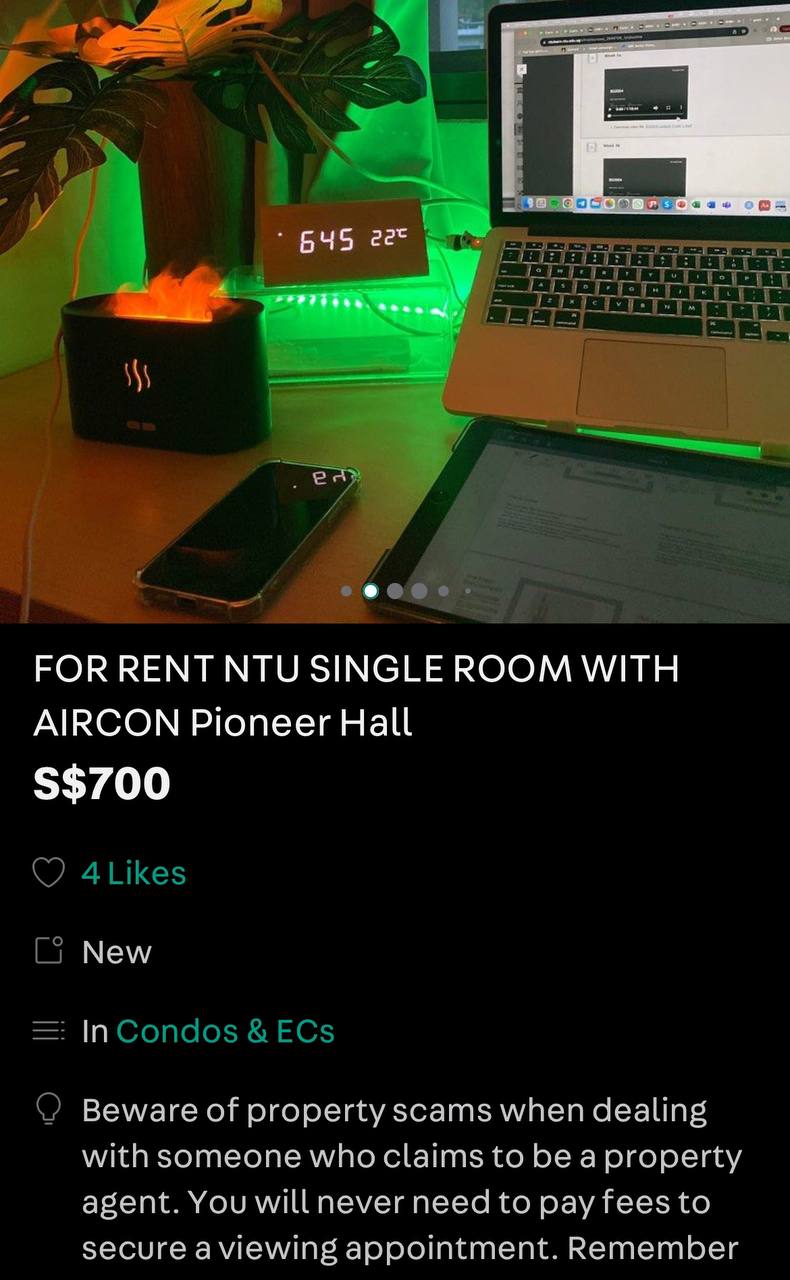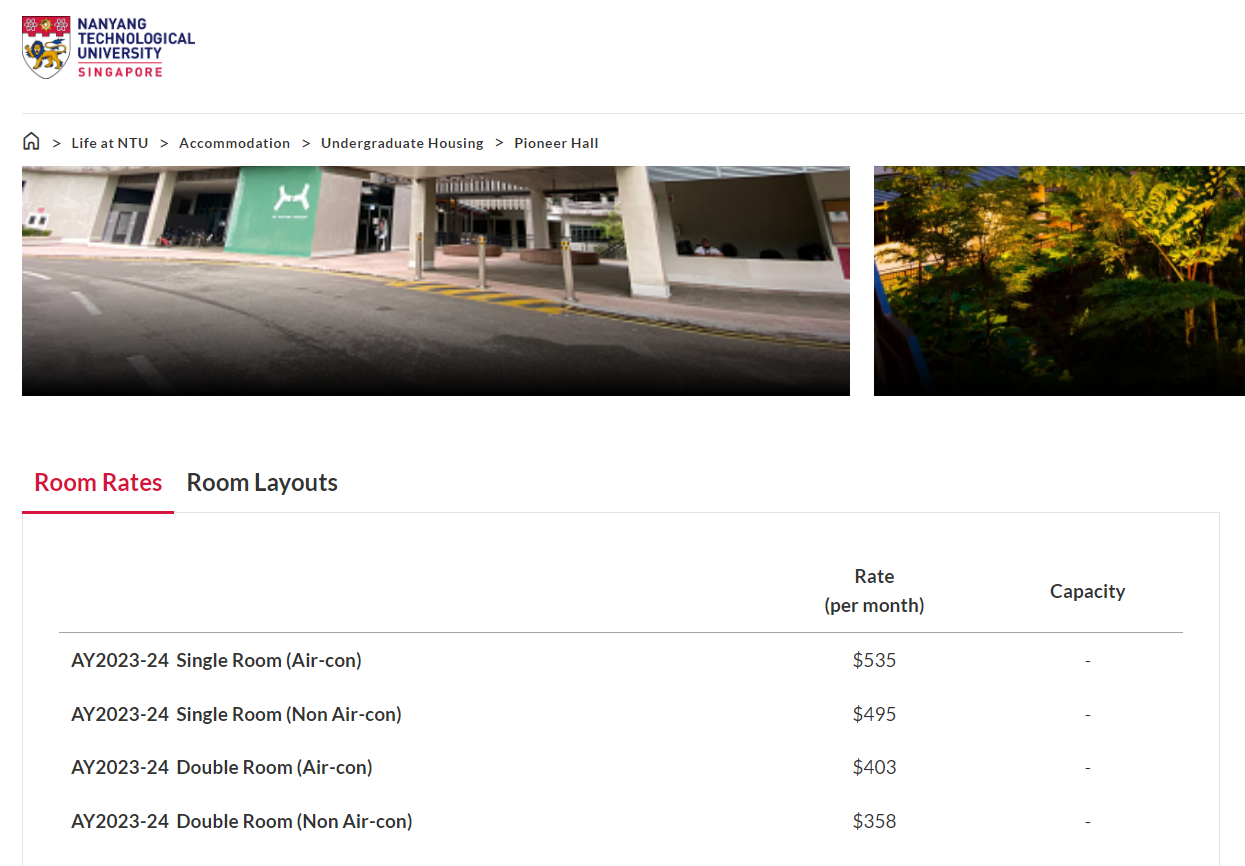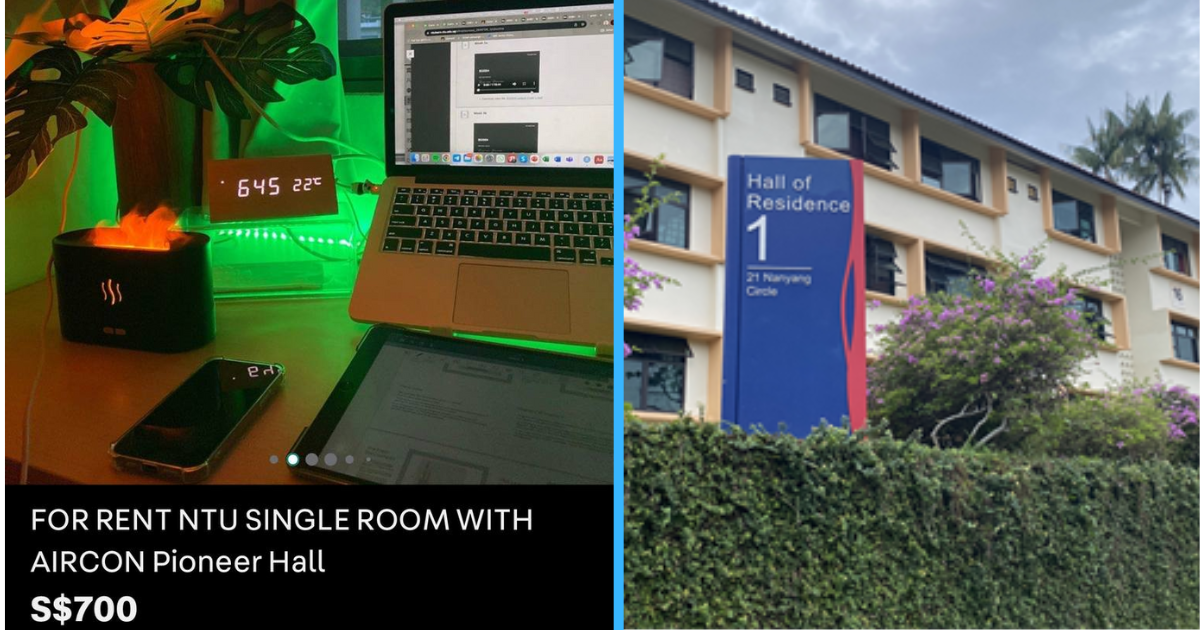Indeed, it’s happening once more, or perhaps it’s more accurate to say it has never ceased.
With the winter break officially commencing for numerous university students, advertisements for hall rentals have resurfaced (yet again).
The issue first gained prominence in 2022, when Nanyang Technological University (NTU) officially responded to this emerging trend.
At that time, local students were found renting out their hall rooms to international students or to those residing far from campus, aiming to make a profit.
Despite NTU sending a school-wide email that explicitly prohibited subletting and warned of punitive measures, the problem persists, somewhat stealthily lingering.
This winter, advertisements for campus accommodation have made a comeback.
They are now visible on Chinese social media platforms such as Xiaohongshu and Wechat, and also on Carousell.

For instance, an air-conditioned room at NTU’s Pioneer Hall is advertised for rent during the holiday season, priced approximately $200 higher than the school’s rate.

The student renting out the room justifies the steep price due to the room’s decorations and appliances.
Some advertisement offered a room at $350 for 19 days in December, while some proposed a daily rate of $45. These rates are nearly double what the university charges.
Wah, they really think hall is Airbnb huh?
While these short-term stays have recently resurfaced, the offering of long-term stays is not new, dating back to 2021.
On Carousell, an air-conditioned room at the National University of Singapore’s (NUS) Prince George’s Park Residence was listed for $1,200 per month for a five-month stay from January to May 2024, in contrast to NUS’s monthly charge of $868 for the same room type.
Students who engage in subletting take considerable risks. Yet, it seems that those inclined to break the rules continue to do so regardless of potential consequences.
Beyond just renting out rooms, some students exploit the scarcity to instigate bidding wars.
This situation places international students and those not financially privileged in a difficult position, forcing them to stretch their budgets for accommodation in Singapore during their studies.

There’s speculation that these bidding processes on platforms like Telegram may still be active.
Students earn hall points or extracurricular activity points based on their involvement in hall-related activities, aiding them in securing a room in subsequent application rounds.
Subletting has become a common practice partly due to the opaque criteria for earning enough hall points for room allocation.
Additionally, some students prefer to live on campus without participating in mandatory hall activities.
Furthermore, the limited availability of rooms and the high demand for the hall experience continue to fuel this practice.
In densely populated Singapore, with over 8,000 people per square kilometre, distributing rooms equitably is a challenge.
Despite this, local universities, including NTU and NUS, conduct regular patrols and spot checks.
However, these measures have limitations, especially when students become aware of the check schedules.
The Straits Times reports that universities impose various penalties on those caught subletting, ranging from bans on campus housing to scholarship termination.
Other consequences include demerit points that could affect one’s educational record.
The universities continue to enforce regular patrols, issue reminders, and warn against such practices.
However, the repercussions for those purchasing from subletters remain unclear.
Will only a penalty like this suffice?



